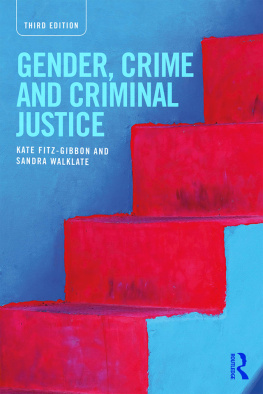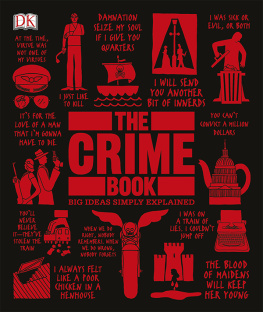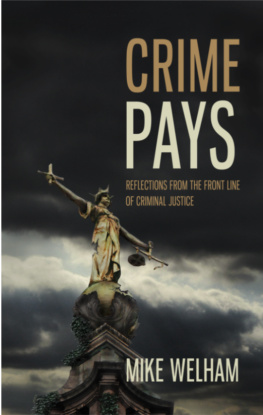
Series page
Key Concepts Series
- Barbara Adam, Time
- Alan Aldridge, Consumption
- Alan Aldridge, The Market
- Jakob Arnoldi, Risk
- Will Atkinson, Class
- Colin Barnes and Geof Mercer, Disability
- Darin Barney, The Network Society
- Mildred Blaxter, Health 2nd edition
- Harriet Bradley, Gender 2nd edition
- Harry Brighouse, Justice
- Mnica Brito Vieira and David Runciman, Representation
- Steve Bruce, Fundamentalism 2nd edition
- Joan Busfield, Mental Illness
- Margaret Canovan, The People
- Andrew Jason Cohen, Toleration
- Alejandro Cols, Empire
- Patricia Hill Collins and Sirma Bilge, Intersectionality
- Mary Daly, Welfare
- Anthony Elliott, Concepts of the Self 3rd edition
- Steve Fenton, Ethnicity 2nd edition
- Katrin Flikschuh, Freedom
- Michael Freeman, Human Rights 2nd edition
- Russell Hardin, Trust
- Geoffrey Ingham, Capitalism
- Fred Inglis, Culture
- Robert H. Jackson, Sovereignty
- Jennifer Jackson Preece, Minority Rights
- Gill Jones, Youth
- Paul Kelly, Liberalism
- Anne Mette Kjr, Governance
- Ruth Lister, Poverty
- Jon Mandle, Global Justice
- Cillian McBride, Recognition
- Anthony Payne and Nicola Phillips, Development
- Judith Phillips, Care
- Chris Phillipson, Ageing
- Robert Reiner, Crime
- Michael Saward, Democracy
- John Scott, Power
- Timothy J. Sinclair, Global Governance
- Anthony D. Smith, Nationalism 2nd edition
- Deborah Stevenson, The City
- Leslie Paul Thiele, Sustainability 2nd edition
- Steven Peter Vallas, Work
- Stuart White, Equality
- Michael Wyness, Childhood

Copyright page
Copyright Robert Reiner 2016
The right of Robert Reiner to be identified as Author of this Work has been asserted in accordance with the UK Copyright, Designs and Patents Act 1988.
First published in 2016 by Polity Press
Polity Press
65 Bridge Street
Cambridge CB2 1UR, UK
Polity Press
350 Main Street
Malden, MA 02148, USA
All rights reserved. Except for the quotation of short passages for the purpose of criticism and review, no part of this publication may be reproduced, stored in a retrieval system, or transmitted, in any form or by any means, electronic, mechanical, photocopying, recording or otherwise, without the prior permission of the publisher.
ISBN-13: 978-0-7456-6030-1
ISBN-13: 978-0-7456-6031-8(pb)
Library of Congress Cataloging-in-Publication Data
Names: Reiner, Robert, 1946
Title: Crime : the mystery of the common-sense concept / Robert Reiner.
Description: Malden, MA : Polity Press, 2016. | Includes bibliographical references and index.
Identifiers: LCCN 2015043505 | ISBN 9780745660301 (hardback : alk. paper) | ISBN 9780745660318 (pbk. : alk. paper)
Subjects: LCSH: Crime. | Criminal justice, Administration of.
Classification: LCC HV6025 .R516 2016 | DDC 364dc23 LC record available at http://lccn.loc.gov/2015043505
A catalogue record for this book is available from the British Library.
Typeset in 10.5 on 12 pt Sabon
by Toppan Best-set Premedia Limited
Printed and bound in the UK by Clays Ltd, St Ives PLC
The publisher has used its best endeavours to ensure that the URLs for external websites referred to in this book are correct and active at the time of going to press. However, the publisher has no responsibility for the websites and can make no guarantee that a site will remain live or that the content is or will remain appropriate.
Every effort has been made to trace all copyright holders, but if any have been inadvertently overlooked the publisher will be pleased to include any necessary credits in any subsequent reprint or edition.
For further information on Polity, visit our website:
politybooks.com
Dedication
To the carriers of the future: Jacob, Ben, Charlotte and David, Toby and Meg
Introduction: Crime: Conundrums of a Common-Sense Concept
This is criminality, pure and simple, and it has to be confronted and defeated.
(David Cameron, quoted in Sparrow 2011)
Contrary to these shoot-from-the-hip remarks by the British prime minister, reacting to the 2011 London riots, crime is rarely pure and never simple (to borrow Oscar Wilde's characterization of the truth). Crime hardly seems an example of purity, and it is far from simple, either as a concept or as a problem to be confronted and defeated, as this book will show.
Spectacularly gory crimes are prime water-cooler moments, uniting all healthy consciences in abhorrence and condemnation, just as Durkheim (1973 [1893]: 80) argued more than a century ago. Yet behind the apparent consensus that crime must be fought, there is considerable conflict about what should or should not be treated as criminal. Even the most shocking crimes divide as much as they unite. The massacre in July 2015 of nine black worshippers in a Charleston church caused revulsion around the world. The South Carolina legislature voted against displaying the Confederate flag, and many major retailers stopped stocking it. Yet sales of the Confederate flag are reported to have soared (Guzman 2015). The suspect, Dylann Roof, was treated to a Burger King by the cops driving him to jail (McCormack 2015). There are clearly conflicting perspectives on even the most horrifying slaughters, especially when divisive loyalties such as those of race, nationality, class or religious belief come into play.
Crime has long been a central theme in popular culture and prominent in measures of public anxiety (as registered by opinion polls although it has been slipping down the hierarchy of concern in the last decade). But what crime is has largely been taken for granted (even though how to explain and tackle it generates fierce controversy). Crime can be seen perhaps as an essentially uncontested concept (to turn on its head the influential notion of essentially contested concepts introduced by Gallie in 1957) but one that ought to be highly contested. The discipline of criminology is evidently defined around the idea of crime, even though some of its most celebrated theories have sought to deconstruct it. But despite all the problems in defining crime that will be elaborated on in this volume, discussions of this underpinning concept have generally been confined to opening chapters (frequently perfunctory) in criminology textbooks. These usually skip rapidly through some controversies and conundrums, before proceeding with the more substantive matters of measurement, explanation and policy.
The general playing down of the issue is indicated by the absence of a text that focuses on the concept of crime, although there is a valuable volume of articles that collects important classic and contemporary contributions (Henry and Lanier 2001). This book will systematically review the problems posed by the concept of crime, and how these have affected criminological theories as well as public and policy debates. It will confront the paradox that the term crime features prominently in public debate and popular culture as if it was straightforward and uncontested, but it is deployed in multiple, frequently contradictory, ways.
Next page






